The start of the new semester marks the return of students to Dankook University (DKU) bringing with it the opportunity to reunite with old friends and make new acquaintances. As is customary, the university is also hosting students from various nationalities as exchange students. For these newcomers, the university and its surroundings represent a fresh start, which can be both exciting and intimidating. We were curious about how they were adapting to their new campus life. The Dankook Herald (DKH) interviewed exchange students from both campuses about their experiences thus far.
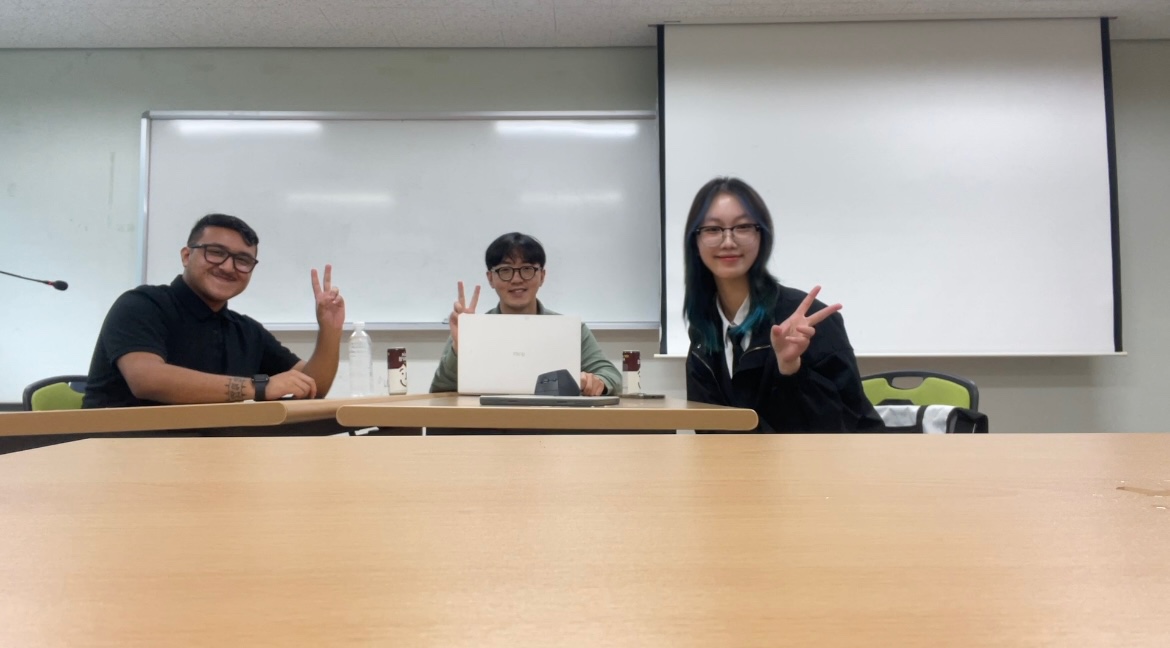 |
| ▲ A Photo Taken Picture While Covering Interviewee, Ray (Photo from DKH) |
Max, from Cameroon, and Raymond, from the USA, are both recent exchange students at DKU. Their motivations were as diverse as their backgrounds. Max was intrigued by the wealth of cultures he had encountered in Cameroon and Europe and sought to round out his cultural experiences by immersing himself in Asia. A chance meeting with a Korean friend from DKU while in Germany solidified his decision. Raymond, on the other hand, was drawn to Dankook for its English teaching opportunities, enabling him to tutor Korean students while pursuing his studies. Recommendations from friends who had previously been exchange students at Dankook further enticed him, as did the prospect of participating in the Global Village program. Their daily lives at DKU paint a picture of active engagement. Max's days brim with classes and extracurricular activities like basketball and sports day events. In his free time, he pens blogs, sharing his impressions of life in Korea and exploring various places around the campus and beyond. Raymond, on the other hand, attends classes primarily on Mondays and Tuesdays, followed by casual meals with friends and evenings at the dormitory. Days without classes often involve meeting Global Village students, hanging out with DIA (Dankook International Ambassador) interns, visiting PC bangs, or exploring Seoul and other cities. Both Max and Raymond have had their fair share of unique cultural experiences. For Max, a visit to the Hanok Museum stood out, offering insights into the origins of the Korean writing system and King Sejong's commendable efforts to implement it. The museum's well-crafted exhibits left an indelible impression upon him. Meanwhile, Raymond found fulfillment in teaching English, adapting his approach to accommodate the initially reserved Korean students. He also observed the heated passion of Korean baseball fans, a cultural distinction from his homeland. Adapting to local culture and lifestyle, Max discovered cultural nuances like removing shoes when entering indoors and the quietness inside Korean buses. While Raymond relished the dynamic night culture and found Korean public transportation, with its speed and affordability, superior to his experiences in the US. Their favorite spots, on and off-campus, offer a glimpse into their leisure activities. Max cherishes the area in front of Ungbi Hall on campus for breakfast and reading, while Suwon, with its scenic night views and tranquil ambiance, remains his beloved off-campus destination. Friendship-building has been an integral part of their exchange experience. Max bonded with Korean students during sports day activities and easily connected with fellow international students through classes and organized activities. Raymond, on the other hand, forged lasting friendships during the Global Village program, connecting with students from diverse backgrounds and gaining insights into different cultures. Balancing academics and exploration, Max prioritizes the latter, relishing every opportunity to savor the unique aspects of Korean life. Meanwhile Raymond's experience balancing work and study in the US equipped him with valuable time management skills to enjoy Korean adventures. Moreover, they also give some advice to future exchange students, emphasizing the importance of making an effort to accommodate and embrace new experiences. Ultimately, the exchange program at DKU has broadened their horizons and deepened their perspectives of different cultures. Max has been inspired by Korea's remarkable development, while Raymond values the opportunity to escape routine and learn about different cultures and approaches to teaching while forging connections in a foreign land. Their overall experiences were quite pleasant, and more great encounters are likely ahead in their future journey in Korea.
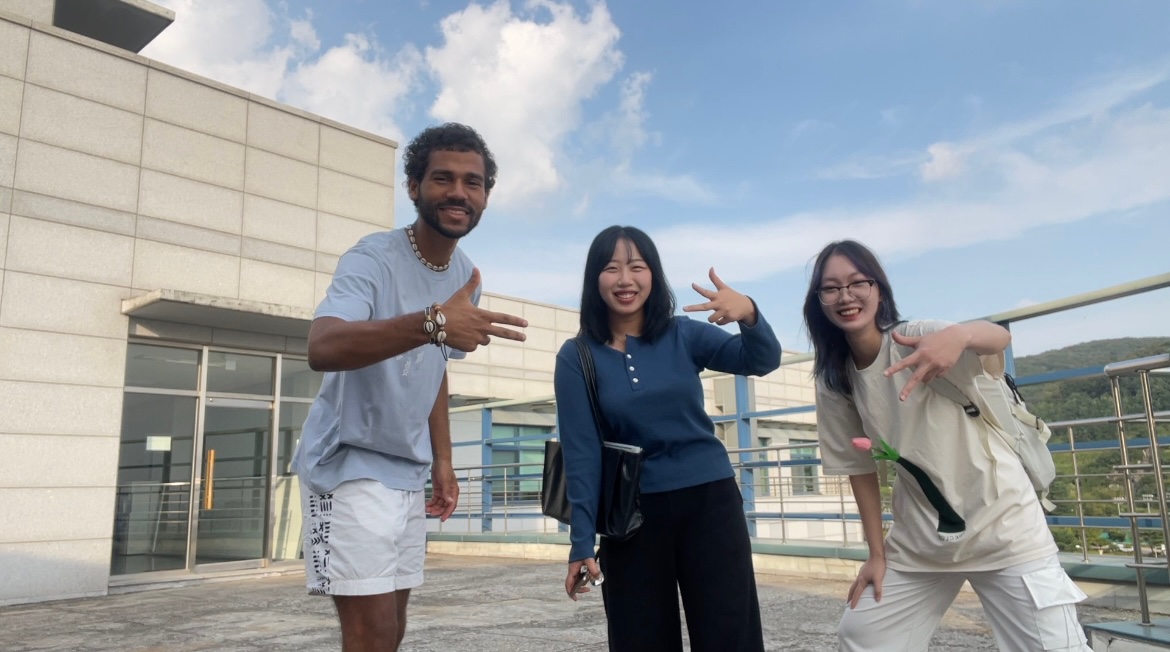 |
| ▲ A Photo of Interviewee, Max Together with DKH after the Interview (Photo from DKH) |
The DKH also met up with Chou Ching Hsu (Junior, Dept. of Crop Science & Biotechnology) from Taiwan. She explained that DKU was the only option for an exchange student from her home country. Her day starts by having breakfast and going to a Korean language school every morning. When it comes to breakfast, she mentioned that Taiwan had numerous specialized breakfast restaurants, where she could conveniently pick up her food to go. However, in Korea, there were fewer such establishments, which meant she often had to settle on a less than satisfying meal to start her day. Taiwan also has a developed takeaway culture and the picture of the Taiwanese restaurant she showed DKH reporters didn't have tables. She said, "In Taiwan, it is common to eat packaged food at school, but in Korea, I miss it the most because I can't do that." When the class ends at 1 p.m., she usually eats lunch in the student cafeteria in the Student Union building. She said she sometimes goes to Sinbu-dong because she has no classes after 1 p.m., but she prefers to spend time alone in the dormitory. She is studying abroad at DKU for two semesters, but for now she only goes to a language school and hopes to take classes next semester after improving her Korean language skills. She lives in Danwoo Hall, and her roommates are all exchange students. Therefore, the opportunities for her to interact with Koreans are lacking unless she or they participate in additional international activities. Regarding the cultural differences between Taiwan and Korea, she first said that the difference in food is interesting. She told me that she was embarrassed when she first visited a restaurant that did not accept solo diners. We also talked about scooters having designated bike parking areas in Taiwan, while Korea allows free parking everywhere. She said it was good to learn about other cultures as an exchange student and to enjoy the freedom of living in a new place. She recommended studying Korean in advance as a piece of advice for future exchange students who may have restrictions on classes and activities due to their lack of Korean skills.
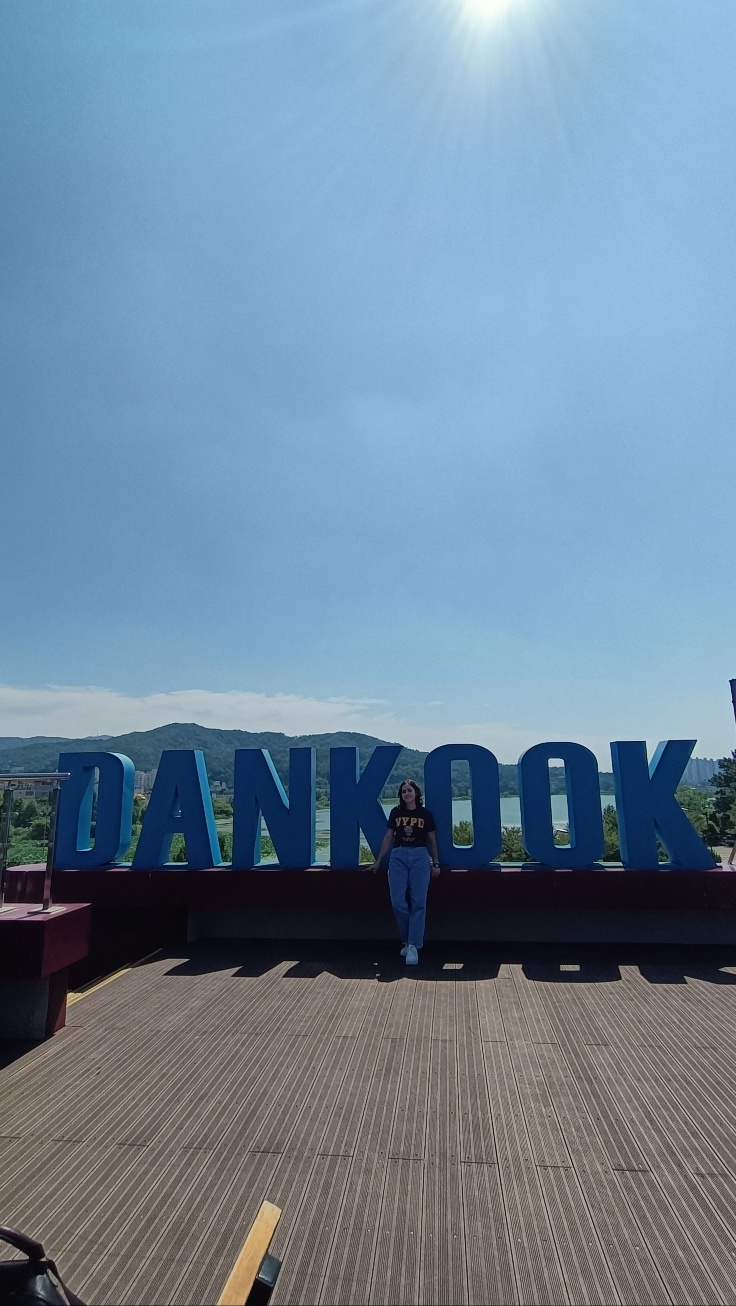 |
| ▲ A Photo of Cristina Enjoying Her Campus Life (Photo from interviewee, Cristina) |
Cristina (Junior, Dept. of Spanish and Latin American Studies) is an exchange student from Spain. She loves traveling and meeting people and is interested in learning or having special experiences. Travel to Korea was previously unimaginable for her because flight prices between the two countries were so expensive. She agonized about traveling but learned that exchange students had their total expenses for by their university. So, she applied to the program. While she loves an adventure, the language barrier has been the biggest challenge. She can understand Korean a little bit, but she can’t speak it well. There is also not a lot of opportunity to learn Korean because her classes at DKU are in English or Spanish. Socializing with Korean students in the same classes is difficult due to the language barrier. She found that most Korean students are also too shy to speak in English or Spanish with foreigners, but she was approached by some who got to know her through conversation. Cristina tries to speak Korean and listen to Korean more to get closer to her friends. Nowadays she feels better adapted to her campus life. Every day she wakes up early and prepares for her Korean and Spanish classes. Because they are in the morning, if she has time, she enjoys a cup of coffee before heading to school. Her classes start at 9:30 a.m. and end at 1 p.m. She lives in a shared room at Danwoo Hall with another exchange student, so, after her classes are done for the day, she usually goes for lunch with other exchange students including her roommate, at nearby restaurants or on the first floor of the dormitory. In the afternoon, she returns to her room to do her assignments and studies. She said she was satisfied with her campus life. Cristina advised future exchange students that no matter what challenges you face, to keep an open mind and everything will eventually work out.
 |
| ▲ DKH and Cristina’s Photo with Symbolic Character of DKU (Photo from DKH) |
The stories we heard about the campus life of our exchange students were interesting. They each adapted to the cultural and lifestyle differences in their own way. Most exchange students do a lot of activities near DKU because they live in the dormitory. However, if they take on more activities like DKU events or clubs, they may even have a happier and more interesting campus life.
윤희원, 김주연, 박상우, 배서연, 이은희, 딘푸엉타오 dankookherald@gmail.com

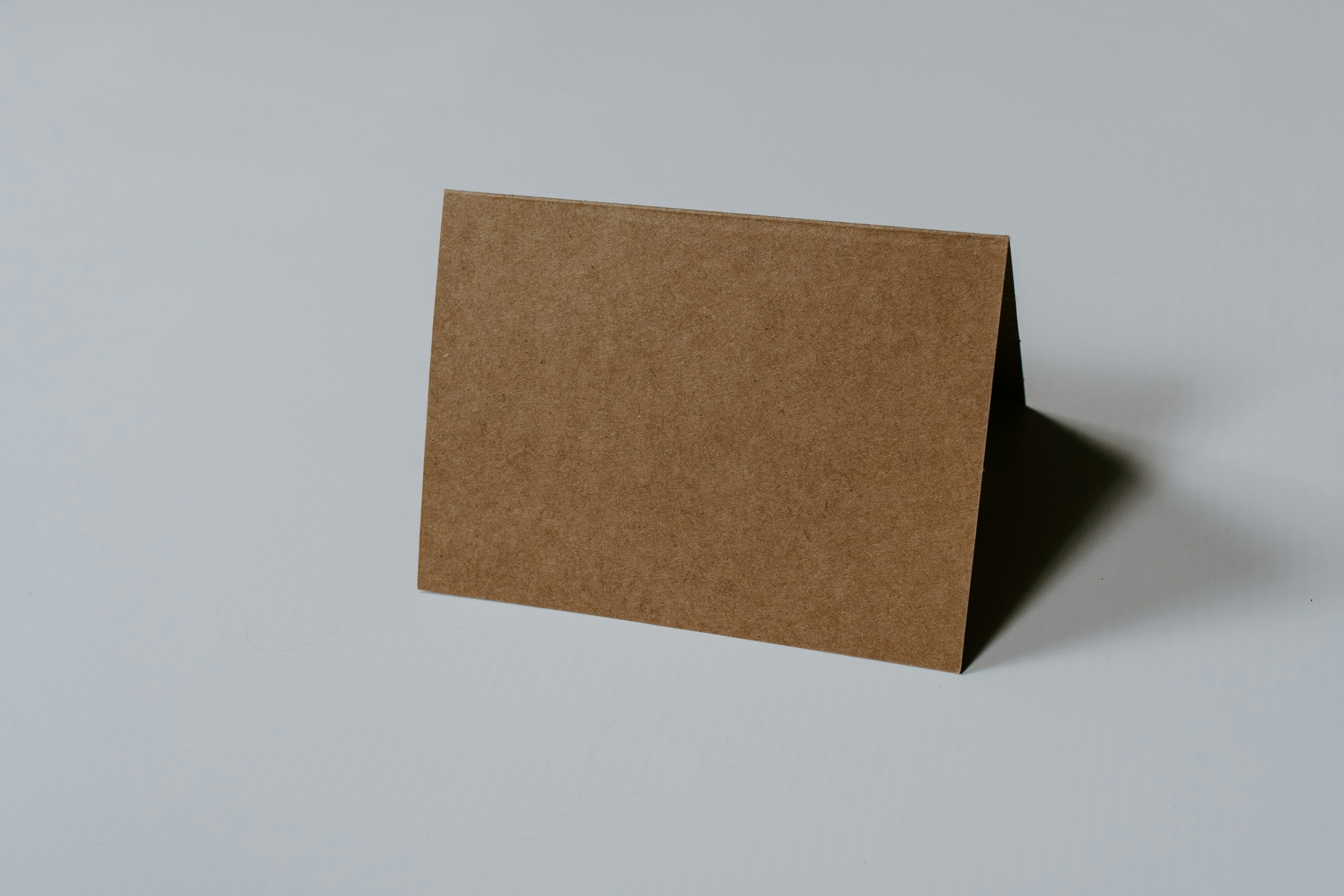 Vote for the Campus Brand Naming!
Vote for the Campus Brand Naming!
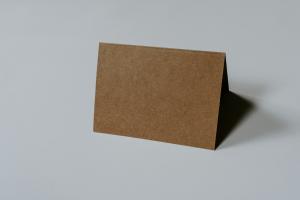
![[Campus Magnifier] Let's Surf the Library!](/news/thumbnail/202404/12496_1765_4143_v150.jpg)




